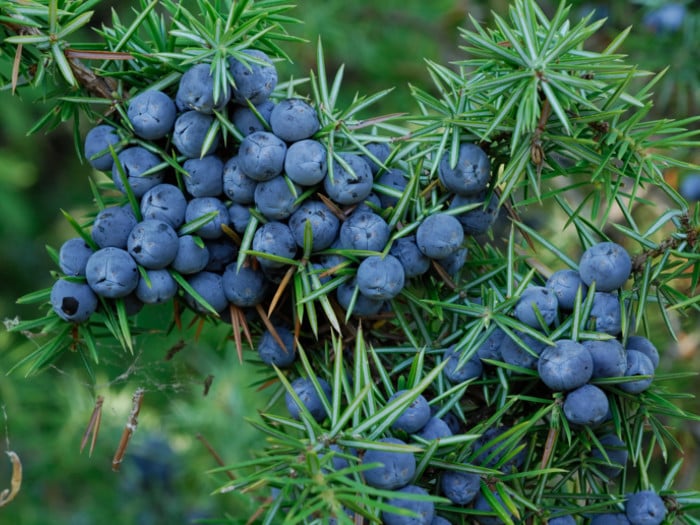Using juniper berry for medicinal purposes has been a practice for hundreds, if not thousands of years, but before using these berries, it is best to understand what they can do, and what risks they may pose.
What is Juniper Berry?
A juniper berry is a part of the seed cone from the juniper tree and is not actually a berry at all. Some of these berries are dried and used as a spice, while some people choose to press out the essential oil, or even steep the berries to make a powerful herbal tea. The berries are famously used to flavor gin. The majority of people can eat juniper berry without any risk of side effects, although allergies to the plant parts of conifer trees do exist. The popularity of this berry is largely due to the health effects it has, derived from its impressive nutrient profile. This results in the anti-inflammatory, antibacterial, anti-fungal, antiseptic, diuretic, and antioxidant properties found in juniper berry. [1]

Juniper berries are the ripe, dried cones from the juniper evergreen shrub. Photo Credit: Shutterstock
Nutritional Facts of Juniper Berry
This berry contains essential oils, terpenes, sugar, and various antioxidants, in addition to potassium, magnesium, vitamin C, calcium, limonene, iron, copper, and chromium. If you plan to take a supplement or simply increase your intake of these berries, there are some dosage guidelines. [2]
For the dried or fresh berries, don’t consume more than 10 grams; in the case of the essential oil, your dosage shouldn’t exceed 100 milligrams. Even if you are simply drinking the tea, limit your intake to 2 each day, or else your risk of side effects increases.
Benefits of Juniper Berry
The most important benefits of juniper berry are its role in reducing oxidative stress, preventing disease, boosting skin health, improving digestion, protecting the heart, and helping to manage diabetes, among others.
Oxidative Stress
With their range of antioxidants, these berries are able to prevent oxidative stress, both topically and internally, thus lowering the risk of chronic disease. [3]
Natural Antiseptic
When this oil is topically applied to the skin, wounds or abrasion, it can protect against infections and bolster the immune system. [4]
Skin Care
If you suffer from psoriasis, acne, rosacea or other skin conditions, juniper berry can quickly reduce inflammation and pain.
Digestion
Juniper berry is known to stimulate digestion and has even been used as a laxative and diuretic in some cultural medical practices, helping cut down on constipation and bloating. [5]
Sleep Problems
Though infrequently used as a sedative, it can have certain relaxing effects on the body and mind that make it a great sleep aid. [6]
Heart Health
With the ability to lower blood pressure and triglyceride levels, these berries can play a significant role in cardiovascular health. [7]
Side Effects of Juniper Berry
Consuming juniper berry is generally considered safe, but there can be allergic reactions, as well as drug interactions and possible toxicity when consumed in large quantities.
- Pregnancy: These berries were often used to stimulate menstruation or ease childbirth. For pregnant women, the berry and its products could cause a miscarriage, and should, therefore, be avoided.
- Drug Interactions: If you are taking certain medications, such as lithium, there could be negative interactions, so speak with a doctor beforehand.
- Allergies: Some people are allergic to these cone parts of the juniper tree, so start by using a small amount of the berries or oil before making it a regular practice. Extended use of these berries shouldn’t exceed 6 weeks without doctor approval.
- Toxicity: When you consume large amounts of these berries or the oil, you may receive a toxic amount of thujone and other oils, which can cause diarrhea, as well as kidney problems in serious cases.
